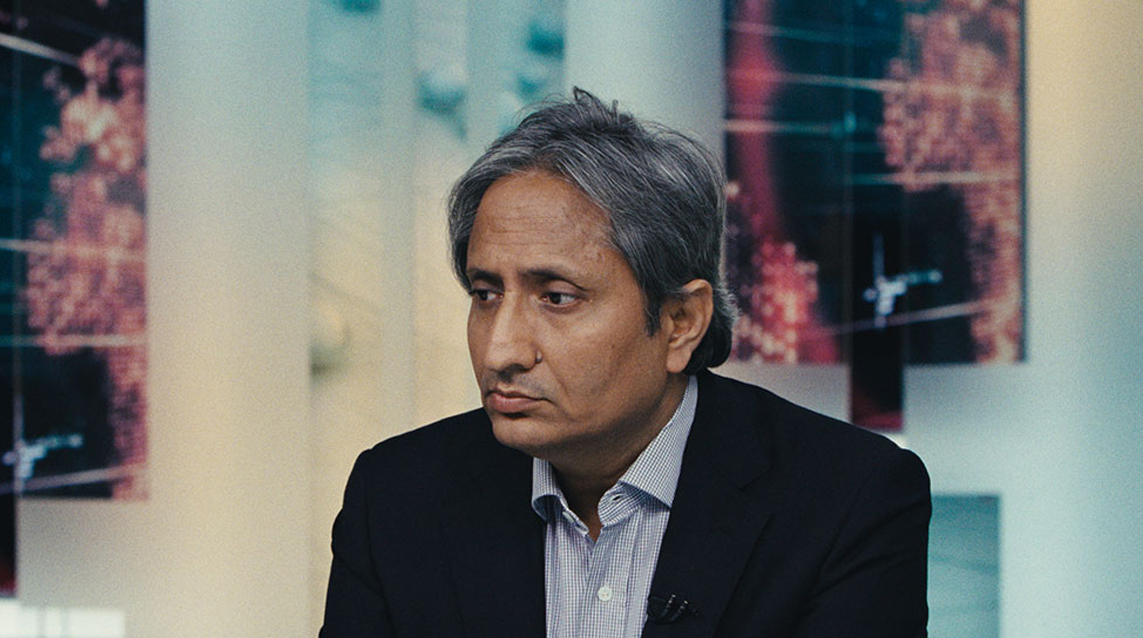Early on in “While We Watched,” Ravish Kumar can’t be entirely sure of why someone is staring at him at a gas station, though in India where he anchors a nightly news report for NDTV, he knows that if someone knows him, they have an opinion. After an uncomfortable amount of time, it turns out the man is a fan, of which there seems to be fewer and fewer circa 2019 when nationalism is on the rise as other networks have driven ratings by stoking fears that the predominantly Hindu country runs the risk of becoming dominated by Muslims and talk show hosts will openly anoint anyone they disagree with as anti-national to end a debate (and likely spark death threats to the person in question).
If “While We Watched” has a flaw, it isn’t one of its own making when the story it tells has become unfortunately all too common around the world in the years since it was filmed, but it is nonetheless an urgent and engaging profile of Kumar, who refuses to be silenced even when it isn’t just angry far-right protestors who want him cancelled but the government itself as conservative Prime Minister Narendra Modi concentrates his power and seeks to put pressure on who he sees as enemies in the mainstream press. Director Vinay Shukla wryly observes the number of cakes that are brought into the office, usually signifying a farewell of some sort, whether due to retirement, layoff or another job as NDTV is squeezed to the bone by general viewer erosion for news, which other networks have fought off with sensationalized opinion shows that parrot government propaganda.
Though rivals have gone so far as to mock Kumar with billboards saying “Ravish Is No Longer Prime,” the 26-year news veteran isn’t one to back down easily and with “Network” a likely reference, he is presented speaking truth much like Howard Beale to a world gone mad in his nightly opening monologue. He can still see himself making an impact, particularly when he emboldens a younger reporter to pursue a hate crime story that ends with police reassessing the situation, but even when he remains steadfast in his beliefs, Shukla can locate the anxiety that runs through the newsroom with glimpses of his colleagues who are inevitably dismayed by business decisions of NDTV that curtails their viewership such as moving to a subscriber-only model and the smaller and smaller amount of staff who can do the work required to keep to the high standards they’ve set for themselves.
Shukla nimbly shows how interconnected these issues all are, even in the film’s fleet-footed 90-minute run time when signs of encouragement are few and far between for those in the field amidst turbulent financial and political headwinds and the end product suffers as a result, no longer able to hold power to account. Although Kumar is held up as a noble figure, his skepticism that has served him so well in reporting on public affairs becomes equally powerful when it comes to scrutinizing what has become of his profession and whether he’s making a difference at all. The media landscape may have only worsened since Shukla wrapped production, but “While We Watched” in and of itself is a strong reminder of what strength using the platform to inform can have.
“While We Watched” will screen again at the Toronto Film Festival at the Scotiabank on September 13th at 11:35 am and September 16th at 9:30 pm.




